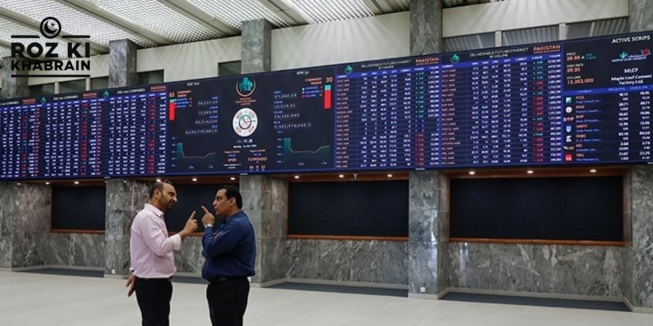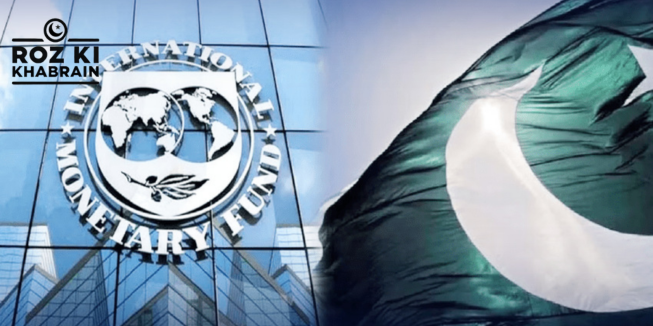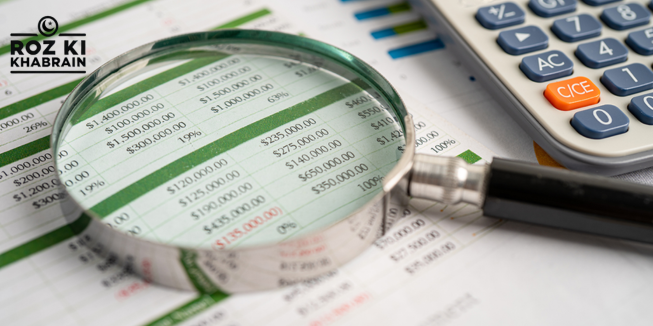KARACHI:
The Pakistan Stock Exchange (PSX) has continued its impressive performance for the second consecutive year, marking a remarkable growth of nearly 80%.
As of December 28, 2024, the benchmark KSE-100 index closed at 111,351 points, reflecting a significant increase from the previous year’s closing at 62,052. Looking back to December 30, 2022, when the market stood at 40,420 points, this represents a 46% rise by the end of 2023.
JS Global Deputy Research Head Waqas Ghani Kukaswadia noted that during 2024, the KSE-100 index reached an all-time high of 117,000 during intra-day trading, despite substantial foreign portfolio investor sell-offs due to rebalancing activities.
For the fiscal year 2023-24, the KSE-100 surged by 89.24%, closing at 78,445 points on June 30, 2024, compared to 41,453 points the previous year. This growth has helped restore market capitalization to Rs10.37 trillion, returning to levels last seen in 2017, according to PSX’s 2024 annual report, “Ode to Service.”
The KSE-100 posted a remarkable 70% gain in CY24, its highest return since 2002, making it the second-best performing global market after Argentina, as per the Pakistan Strategy 2025 released by AKD. The index is projected to reach 165,215 points by December 2025, representing a potential upside of 55.5%, showcasing the growing interest of global investors in PSX.
Increased trading activity was evident throughout the year, with the KSE-100 experiencing steady growth from the start of 2024, culminating in a strong rally in the second half of the year, which saw the index peak at 117,039.18 before stabilizing. By December 27, 2024, it closed at 111,351.17, near its peak. The market saw a trading volume of 816 million shares on December 28, 2024.
The total trading volume for 2024 surged to 151.4 billion shares, nearly double that of 2023, with daily trading values averaging Rs22.1 billion. This surge reflects heightened investor participation and confidence, fueled by macroeconomic reforms such as declining interest rates and single-digit inflation, which have significantly boosted investor sentiment.
The year also witnessed 11 new listings, including notable companies like the Symmetry Group and TPL REIT Fund-I, raising Rs103.3 billion. PSX also facilitated the issuance of 22 government Ijarah Sukuk instruments, raising Rs687.81 billion. The introduction of Shariah-compliant products, including new exchange-traded funds (ETFs), expanded investment options and encouraged inclusivity.
Several sectors, including banks, fertilizer, energy, and technology, emerged as top performers, benefiting from a stable currency, monetary easing, and growth-driven reforms. In the medium term, textile exports are expected to lead, while technology is poised for long-term growth.
Foreign interest in Pakistani equities has increased, particularly with the country’s improved position in the MSCI Frontier Markets Index and the expected reclassification into the MSCI Emerging Markets Index. Seven stocks are already meeting the criteria for this reclassification, further driving momentum.
PSX’s innovation efforts included the launch of tools like the My Portfolio web app and the PSX WhatsApp Service, making market participation more accessible. Additionally, the exchange introduced a sophisticated primary market auction system for government debt securities and implemented a One-Share Lot System to enhance liquidity and align with international standards.
Pakistan’s economic growth in FY24 was modest, with GDP expanding by 2.5%. However, projections suggest an increase to 2.7-3.2% in FY25 and 4.3% in FY26, supported by industrial and service sector recovery. The current account is expected to maintain a surplus, aided by strong remittances and moderate import growth.
Waqas Ghani Kukaswadia of JS Global noted that the State Bank of Pakistan continues its monetary easing, reducing the policy rate by 200 basis points earlier in December 2024, with inflation for November 2024 standing at 4.9%. The cumulative interest rate cut since July 2024 has reached 900 basis points.
Fiscal reforms have helped reduce the fiscal deficit to 5% of GDP in FY24, with further improvements anticipated. The government’s structural adjustments in taxation, energy tariffs, and investment frameworks are strengthening economic resilience.
Ahsan Mehanti, MD of Arif Habib Commodities, noted PSX’s strong performance despite low foreign direct investment and foreign outflows, attributing it to low inflation and SBP policy easing. He expects positive earnings forecasts and regulatory changes in sectors like banking, pharma, and auto lending to drive the PSX to new heights in 2025.
The Special Investment Facilitation Council (SIFC) is expected to play a crucial role in attracting $5 billion in foreign direct investment annually, while CPEC Phase 2.0 will focus on industrial, agricultural, and trade development, with a strong emphasis on infrastructure and renewable energy projects.




